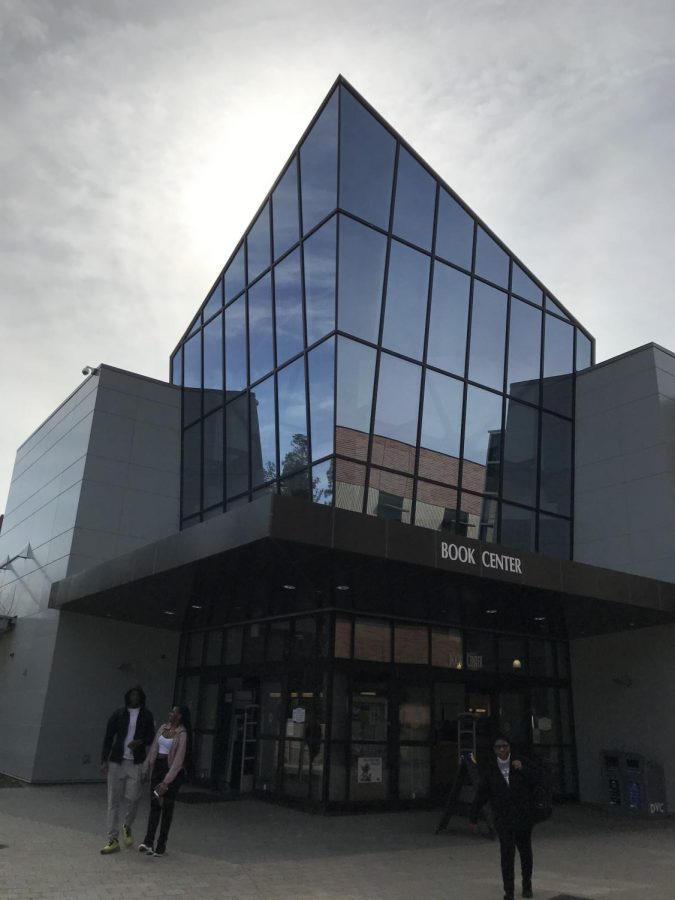DVC Student Workers Face Unemployment Amid Coronavirus Campus Lockdown
March 30, 2020
More than 300 Diablo Valley College students depend on campus-based employment to sustain themselves financially. For many, however, Sunday, March 15 marked their final day of work when the Contra Costa Community College District announced the suspension of all face-to-face classes as well as on-campus student services to curb the spread of the Coronavirus in the county.
The measure, while intended to keep students safe, has created a new problem of unemployment among DVC student workers, many of whom rely on income from their campus jobs to pay the bills and manage other living costs.
“This is my only job,” said Subhiksha Kanchadapu, a computer science major who works as a student ambassador in the Welcome Services center. “When I realized that the campus was going to close, I was not sure what I could do to meet my monthly finances at home.”
Kanchadapu’s earnings of about $500 monthly from her campus job is vital to the upkeep of her household, which she shares with her single mother. According to her, this income is used not only to cover electricity bills and grocery costs, but to pay her tuition as well.
Her only option now is to live on savings, but even that has its downsides.
“My savings aren’t enough to last long,” Kanchadapu said. “I also have to think about how I can pay for the finances if this situation prolongs and I end up using all my savings that came from my last year’s scholarship and work. I have to consider how I can start saving again.”
Many other student workers share Kanchadapu’s sense of economic anxiety and uncertainty as they find themselves scrambling to make ends meet in these unprecedented times of state lockdown due to a pandemic.
Many others ,however, are not in this boat. For some, their program coordinators have devised methods that allow student staff to maintain their pay by working remotely during their regular hours.
Alcides Fuentes, an environmental science major who holds two jobs as a peer advisor at the Extended Opportunity Program and Services (EOPS) office and as a leader at the Puente, Umoja and MESA Achievement (PUMA) center, explained that while his work at EOPS has been suspended, he is still able put in hours at the PUMA center remotely.
“I am very grateful that the PUMA center is continuing to provide work for the PUMA leaders during this time,” Fuentes said. “I am currently working on some powerpoint presentations and social media content. So far, it’s been very productive.”
But the transition from an in-person model to a strictly online model has proved difficult for some program coordinators who have had to get creative about how they track the productivity of their student workers.
“Tracking the progress of projects and worked hours has been a bit different, but different is good in my book,” Marina Arevalo, the PUMA program coordinator, said. She added that the PUMA staff continues to hold weekly virtual meetings to stay up to date with remote projects and keep workers accountable for their jobs.
“It’s been a challenge, but we’re getting through it as a team,” she said.
Likewise, the coordinators of the English tutoring program are making arrangements to offer their services remotely as well using online resources such as Zoom and NetTutor.
“Remote tutoring still hasn’t started yet, but it is coming soon,” said Kelly Coryrell, an English major who works as a Supplemental Instruction Leader (SIL) in the English Lab. “For now we are reviewing and practicing our skills as well as testing the new methods we can use.”
Coryell said she is still able to offer her services as a supplemental instruction leader by interacting with students through discussion boards on Canvas.
“I know some [supplemental instruction] leaders are holding zoom sessions, but it depends on what class you have,” she said. “It’s not the same as face-to-face classes, of course, but everyone is managing to pull through as we work together.”
Despite the employment challenges, most student workers continue to maintain a positive outlook on their situation.
“I’m grateful to still have a job amidst the pandemic, plus I get to be creative in the kind of work I provide,” Fuentes said. “I think I will be able to survive this situation financially.”










































































